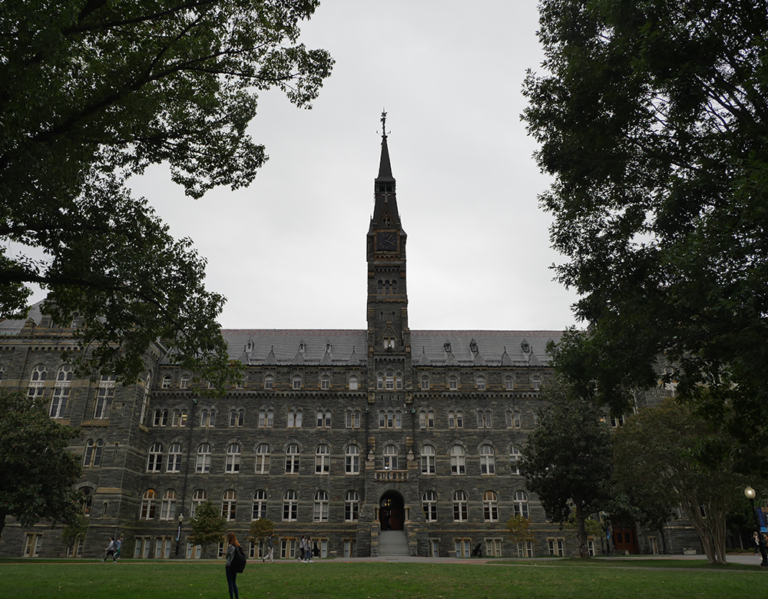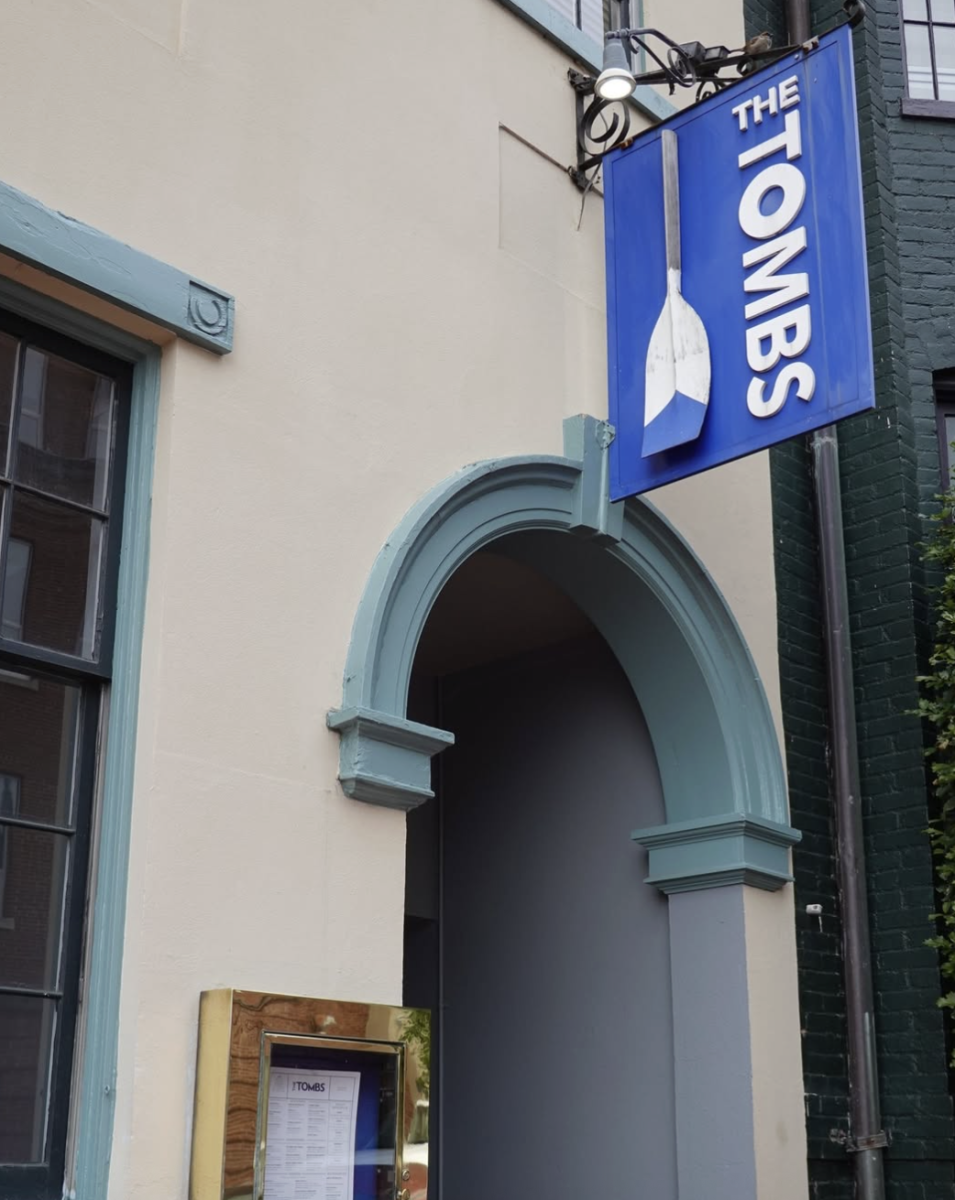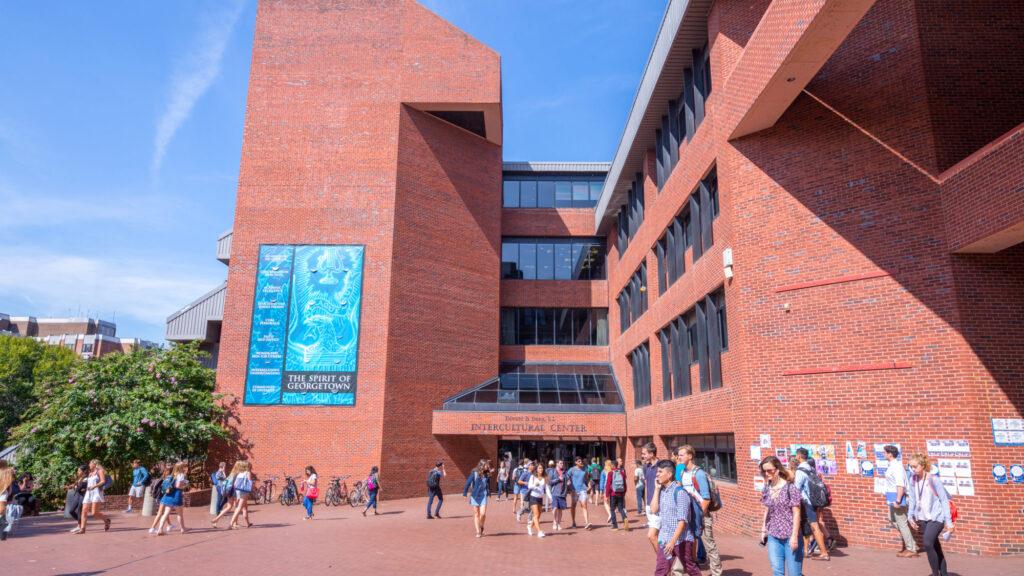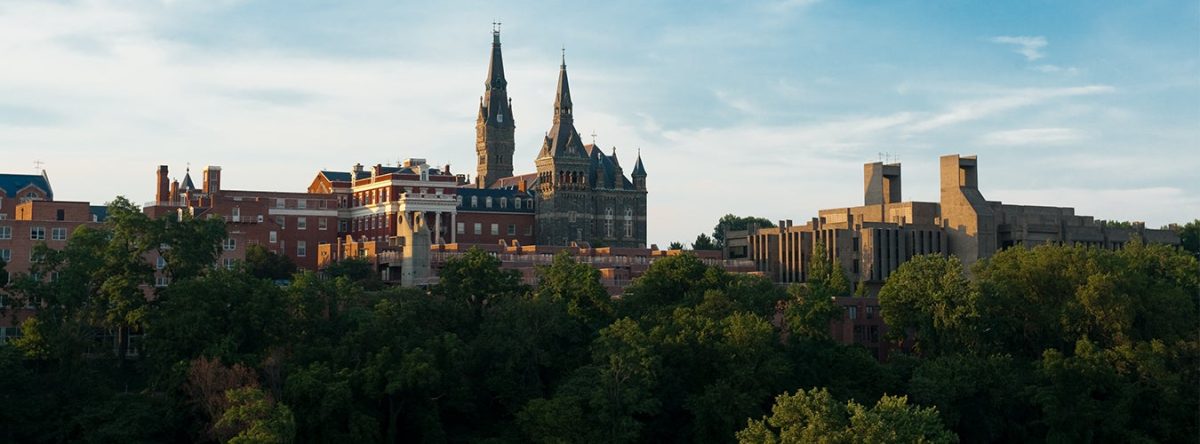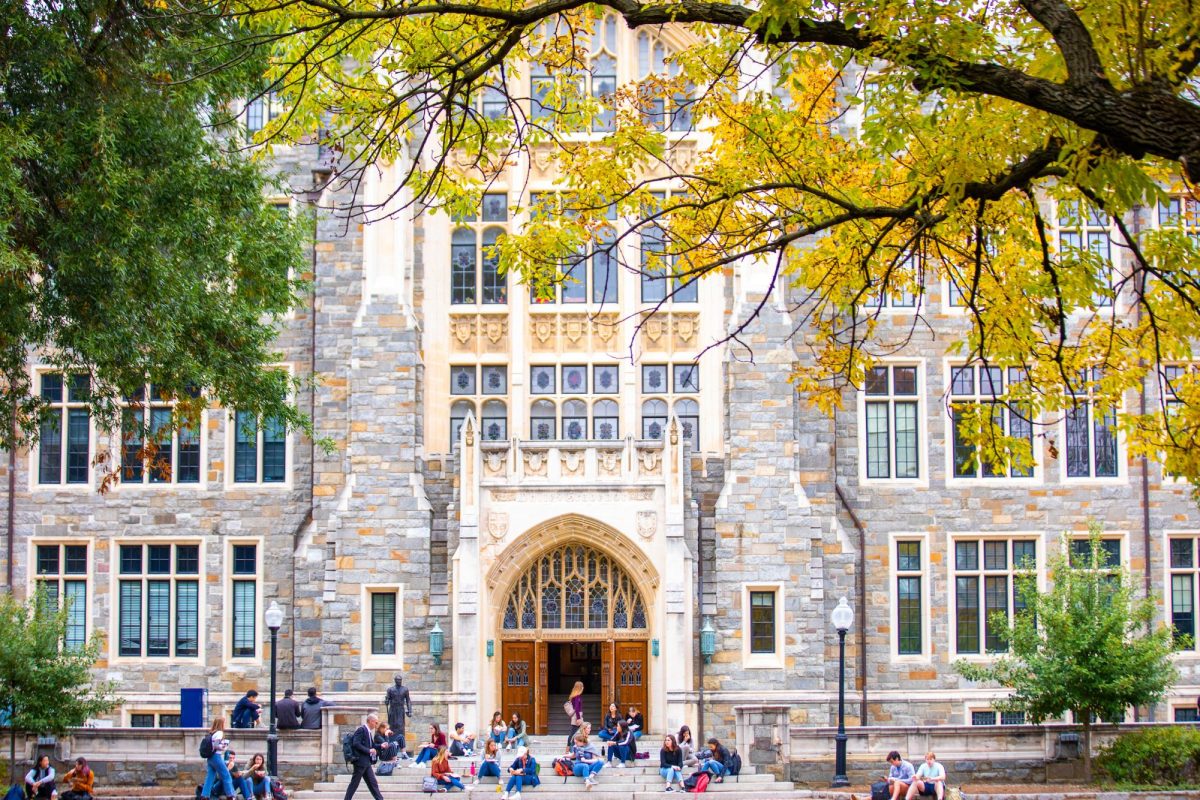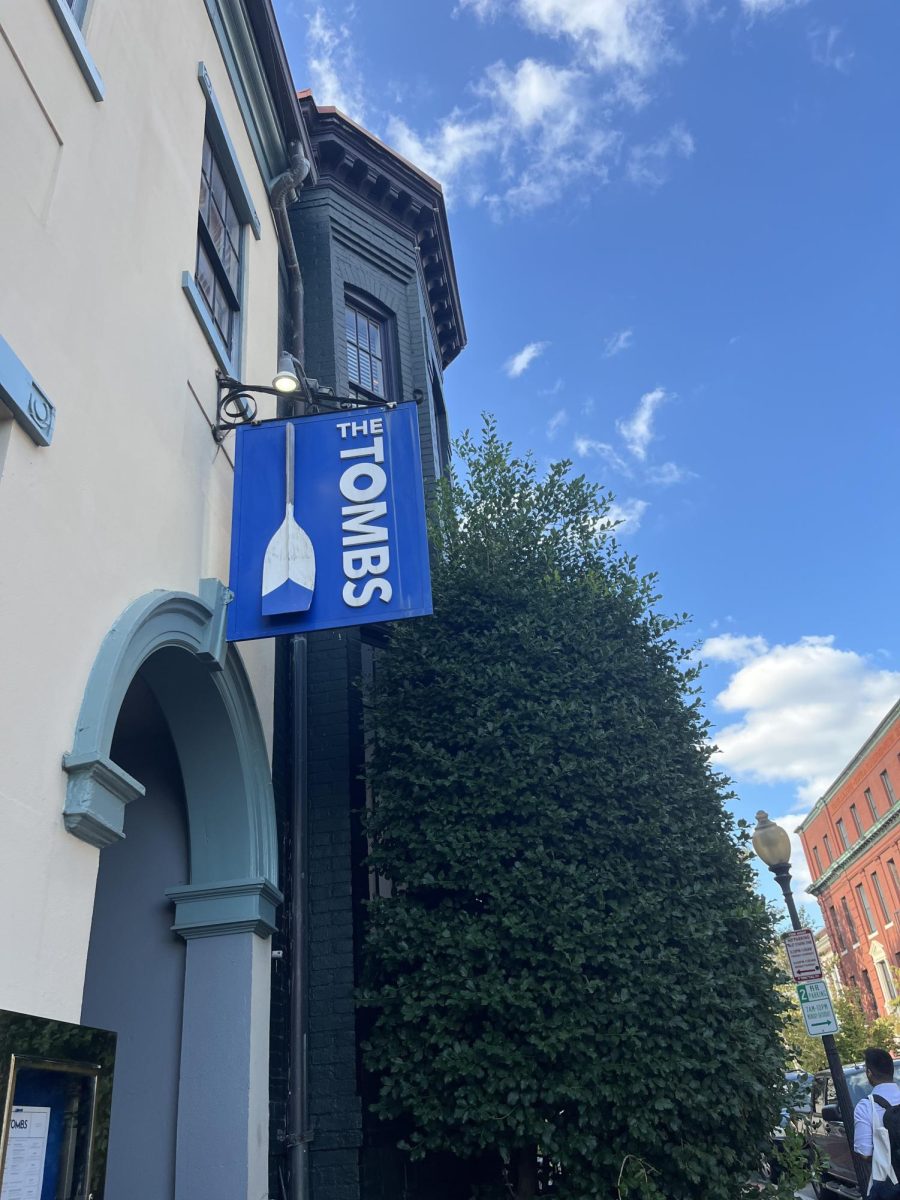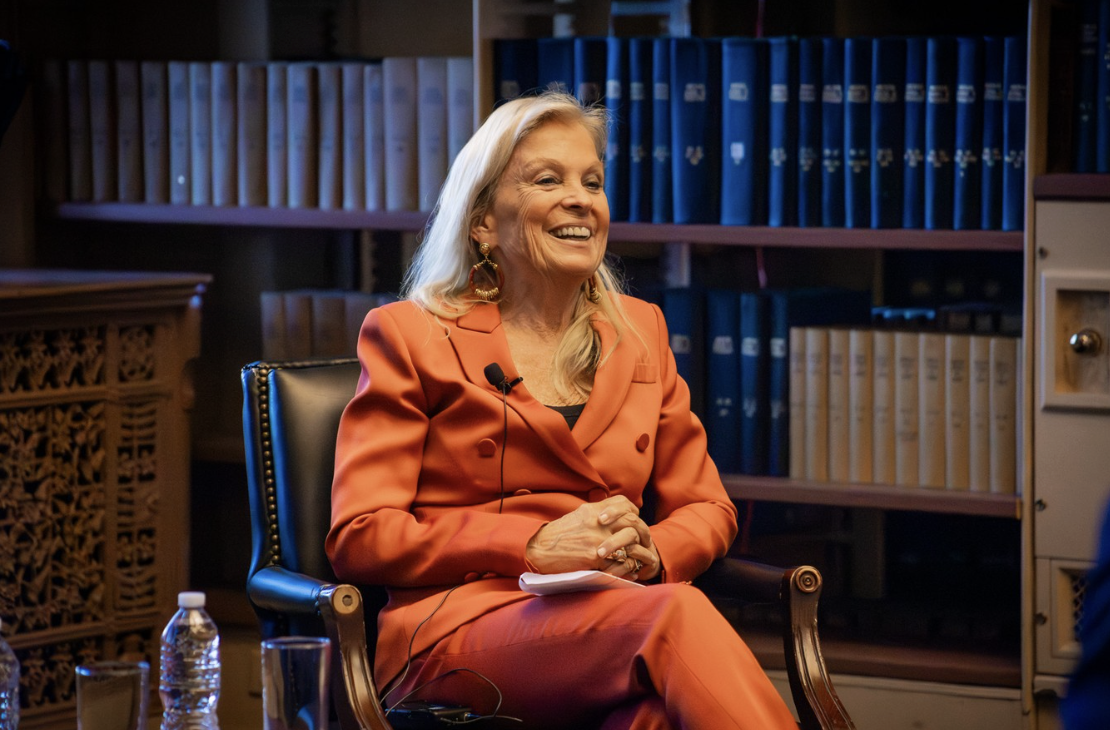The Georgetown University Student Association (GUSA) Senate passed three bills calling on the university to improve student spaces and make election days class-optional at its Nov. 3 meeting.
Among the non-binding resolutions passed by the senate were bills that would plant native wildflowers in roped-off areas across campus and another that requested Planning & Facilities Management assess the heating system inside Lauinger Library for damages. The senate also passed a bill recommending optional classes and no exams on all national election days and tabled a bill that would allow undergraduate students to book classrooms for meetings and other events.
The resolution to plant wildflowers in unused grassy spaces is intended to increase biodiversity, attract essential pollinators and reduce the cost and environmental impact of the grass currently planted, according to the bill’s text.
The bill’s sponsor, Senator Sienna Lipton (CAS ’27), said the wildflowers would be an inexpensive way to improve unused areas on campus.
“The grassy patches that are blocked off from walking around Regents Hall and the Intercultural Center are supposed to be future construction,” Lipton said at the meeting. “It would probably be $5 for us to plant wildflowers that are native to Washington, D.C., to have there. It wouldn’t be fancy landscaping or anything like that.”
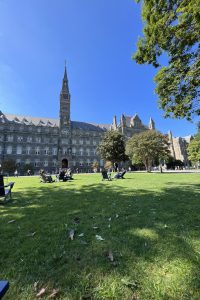
Another bill passed by the senate calls on Planning & Facilities Management to ensure that Lauinger Library is heated appropriately in the winter, including accounting for temperatures of differently sized rooms in the library and ensuring the continual maintenance of the heating and cooling system.
Senator Sam Lovell (CAS ’25), the sponsor of the bill, said the temperatures in the library are a common talking point, especially in the winter.
“I’ve heard a lot of comments from people that they find Lauinger to be quite cold,” Lovell said at the meeting. “I’m recommending that the heating and cooling system be assessed for anything that might need repair and suggest that the library be heated to a minimum of 68 degrees Fahrenheit.”
Senator Julia Revill (SFS ’27) and Senator George LeMieux (CAS ’25) said there are also issues with rooms being too hot, and suggested a range of acceptable temperatures from 68 to 72 degrees Fahrenheit.
“I feel like the study rooms in Lau have the opposite problem, where it’s literally like coming into a boiler room,” Revill said at the meeting. “I feel like maybe we should add something to address that issue as well.”
Another bill the senate passed recommends that classes on Election Day, including midterm elections, be optional in future years.
Senator Tina Solki (MSB, SFS ’26) said Georgetown’s location in the nation’s capital lends itself to political participation, especially around elections.
“There are many schools that completely cancel classes on Election Day,” Solki said at the meeting. “Because Georgetown is in D.C., a lot of students here are politically active and involved in the election process.”
“We’re not asking them to cancel classes, just maybe have classes be optional and have an easy appeal process to rectify any issues,” Solki added.
A final bill to uphold standards of conduct for student leaders in organizations across campus was narrowly defeated in a vote of 8-9 after a long period of debate. The bill would have developed a confidential audit process with the Office of Student Conduct to ensure that students do not have past conduct violations before becoming club leadership.
Solki, the sponsor of the legislation, said that the bill would be an important step in ensuring integrity in campus groups.
“As it stands, there is no formal way for organizational leaders to be held to the standard that they ought to be,” Solki said at the meeting. “Leaders of organizations here are being put in charge of anywhere from 10 to dozens of other students, especially on this campus because extracurricular life is so integral to the student experience.”
Senator John DiPierri (SFS ’25) expressed concerns about the implications of the resolution.
“I’m just really concerned about the precedent that we set with this, and it seems like a really slippery slope,” DiPierri said at the meeting. “It’s not restorative in any way. People mess up, but then because of it they’re shut out of everything all the time.”
Lovell, one of the co-sponsors of the bill, said that the bill would have been an important step in creating a positive campus culture.
“I think that members of our senate should be held to a high standard of ethical conduct, and that should include ensuring that they haven’t engaged in, for example, harassment or Title IX violations that students aren’t aware of,” Lovell told The Hoya. “I think we presented a way to accommodate students so it wouldn’t impact minor infractions and respect each student’s privacy.”



